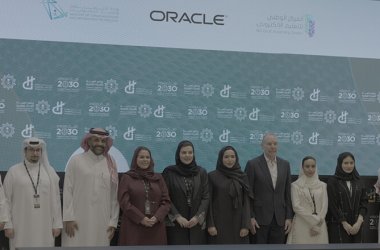Avaya Holdings has announced its latest move to boost its integration with Google Cloud to fully leverage the AI and cloud capabilities of both companies.

The latest integration is aimed at providing Avaya clients with new capabilities to enhance their customer experience and achieve desired business outcomes.
Avaya is embedding Google Cloud’s machine learning technology within its conversation services powering the contact centre, enabling easy integration of digital AI capabilities for a consistent and intelligent customer experience. With the help of Google Cloud, Avaya provides increased flexibility, efficiency and scalability in deploying powerful and simple communication and collaboration solutions that improve the customer journey and increase workforce engagement with more personalised, intelligent and insightful interactions.
Avaya is one of the Google Cloud partners participating in an early access programme aimed at augmenting next-generation contact centres with various Google Cloud Contact Centre AI technologies. In turn, Google Cloud joins a growing number of AI innovators in the Avaya A.I.Connect ecosystem.
“This announcement is yet another example of Avaya pushing forward with both its AI and cloud strategies. By extending our integration with Google Cloud, we are bringing the industry’s leading machine-learning capabilities, based on Google DialogFlow, to our chatbots,” said Ahmed Helmy, CTO, Avaya International. “The integration has also taken our architecture to the next level, truly enabling flexibility of choice when it comes to cloud-based delivery models. We’ve already offered AWS as a deployment model, and now we can deploy through Google Cloud. This gives our partners and customers a wide range of choices on how they deploy Avaya technology; they can now do so on their preferred cloud vendor infrastructure. Indeed, even if a customer runs on another cloud infrastructure, we can support them – thanks to the fact that we’ve adopted Kubernetes as an orchestration tool for containerisation. This is the most common container, and it gives our customers and partners more flexibility to scale and extend their deployments.”
Avaya has also adopted Kubernetes to empower its solutions with microservices and containerisation, taking a true cloud foundation design approach in their solution offerings. This will help organisations to embrace a hybrid cloud deployment option for their communications infrastructure, delivering the benefits of cloud solutions while avoiding the one-size-fits-all limitation offered by other providers. Through its collaboration with Google Cloud, Avaya is providing customers with increased flexibility, efficiency and scalability in deploying the contact centre and collaboration solutions that best meet their specific needs.
Additionally, Avaya has added Google Cloud Platform as a deployment option for its portfolio of communication and collaboration offerings, providing cost benefits through additional customer choice for cloud deployment.
These efforts complement a number of other Avaya and Google Cloud integrations, including Avaya OneCloud for contact centre and unified communications feature an identity engine and provisioning built natively in Google Cloud Platform, and fully support single sign-on and native integration with G Suite; Avaya IX Collaboration meetings-as-a-service is natively built on Google Cloud Platform and is available globally.
In addition, Avaya OneCloud CPaaS will be integrated with Google IoT Cloud and natively supports Google speech services, transcription, and storage for robust real-time messaging solutions across IoT-enabled devices and applications. This allows IoT solutions to deliver real-time event awareness over Avaya’s reliable communications framework.
Finally, as Avaya Vantage desktop smartphones are Google Mobile Services (GMS) certified the latest integration will allow it to offer a unified “out of the box” experience with pre-loaded Google apps, as well as the ability to obtain additional third-party apps for specific business or personal needs.





